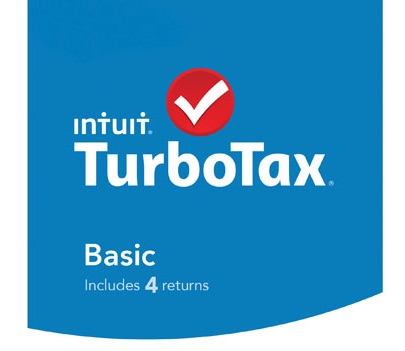 Today I consider 5 key tips to help you prepare for tax season. These lists are always somewhat subjective, but everything I mention below is certainly worth considering. Let’s get right to it!
Today I consider 5 key tips to help you prepare for tax season. These lists are always somewhat subjective, but everything I mention below is certainly worth considering. Let’s get right to it!
Tip 1: Be Organized & Prepared
Being prepared at tax time means doing things like keeping all of your receipts & tracking all of your allowable deductions well ahead of the tax deadline. Ideally you should be doing this all through the year and keeping everything together in a file or drawer. As T4 (income) & T5 (investment) slips roll in, place them with your other documents (including last year’s Notice of Assessment) and keep a running checklist of which forms are in and which are still outstanding. It can also be a good idea to keep all of last year’s tax return documentation handy just in case you need to refer back to it. By keeping on top of things as they occur, you’ll be fully organized and ready to begin once tax time arrives.
Tip 2: Learn What’s Possible with Respect to Tax Deductions & Credits
When it comes to filing one’s tax return, there are so many rules and legalities that can easily cloud the issue. This can make the entire process both frustrating and scary. Moreover, not knowing what your legal rights and obligations are can lead to needlessly paying higher taxes than you’re absolutely required to pay. Remember, the goal of every individual taxpayer should be to pay as little tax as is humanly possible—legally of course! Being prepared at tax time means knowing what your potential deductions and tax credits are. For example, if you’ve recently been in school, you may be eligible for a substantial tuition credit. This particular scenario applied to me a few years ago, and if I hadn’t known about the credit, I wouldn’t have been able to take advantage of it. Another possible deduction pertains to those who work via a home office. For instance, you may be eligible to write off part of your rent expense (if you are a renter) as well as other home expenses such as your phone and Internet connections. I’m no expert on exactly what is allowed, but I do advise you to learn what’s what before you file. You may end up saving yourself a bundle!
 Tip 3: If Possible, Always Maximize your RRSP & TFSA Contributions
Tip 3: If Possible, Always Maximize your RRSP & TFSA Contributions
Maximizing your RRSP contributions each year will ensure that you have less taxable income to pay on, and it will also provide you with a nice nest egg for your eventual retirement. Similarly, income you earn through a Tax Free Savings Account (including interest income, dividends, and even capital gains from buying and selling stock) is not subject to taxation, so it’s always worthwhile to maximize your annual TFSA contribution as well. For some individuals, one of these options may be more beneficial than the other. For most people, however, I think that both options are certainly worth considering. After all, making your full RRSP contribution can lead to a much bigger income tax refund for many, which can then be used towards something like a well deserved vacation, a down payment on a new vehicle (or lump sum mortgage payment), or even as a savings investment for next year’s RRSP contribution.
 Tip 4: Heed the Filing Deadlines
Tip 4: Heed the Filing Deadlines
Many times life becomes so busy that we forget about important appointments and deadlines. When it comes to paying your taxes, this is certainly to be avoided! It’s even more desirable to avoid if you’re expecting a big fat tax refund. To keep you on top of this years tax deadline, I’ll provide you with it right now: The tax filing deadline for most Canadians is 30 April 2016. If you are self-employed or are the spouse or common-law partner of a self-employed person, your deadline is 15 June 2016. The preceding information should apply to the vast majority of Canadians, so now there’ll be no excuse for missing the deadline. And remember, hitting the tax deadline doesn’t merely mean beginning the entire process on the afternoon of April 30th. Give yourself plenty of time to make sure you’ve gathered everything you need, and take the trouble to understand everything you’ll need to know to file a mistake-free return with the biggest possible refund!
Tip 5: Use Tax Software, but when in Doubt, Consult a Tax Professional
Tax Software, such as that provided by TurboTax, is absolutely amazing. It’s always fully up to date with regard to the current year’s tax rules, and it’s designed to be easy and straightforward to use. In recent years, my wife and I have used TurboTax to file our taxes, and it’s always worked out very well for us. Last year, however, our tax situation changed considerably, and we thought it worthwhile to consult with a tax professional before filing. This was a wise decision for us as we had a number of new considerations versus previous tax years, and it made us feel much more confident that everything was 100% correct and accurate. This year we feel like we have a pretty good handle on the rules we need to know regarding stuff like self-employment income, so we may not need any additional help at all. However, if we do find ourselves in need of additional support, it’s good to know that TurboTax itself provides lots of support right within the program. For example, you can access live 24 hour customer support (including tax advice via chat box within the software itself or right over the telephone). Alternatively, you may consult their FAQ or community forums where your questions will be answered by a tax expert. Finally, you can even get a professional review of your return right from the folks at TurboTax—for the ultimate peace of mind. Of course, there may be extra costs associated with some of these features, but you’ll rest easy knowing you’re not doing this all on your own. And, your maximum refund is guaranteed!
Among the current editions of TurboTax are TurboTax Basic 2015 (with up to 4 returns) & TurboTax Standard (with up to 8 return codes provided). TurboTax Basic is perfect for individuals, couples, and families that simply have employment income and charitable donations to report, while the Standard Edition of TurboTax is great for people in a variety of slightly more complex tax scenarios (including having RRSPs and medical expenses to claim). Additional Tax, Accounting & Finance Software is also available from Best Buy by following the link. By using one of these products, which also includes the widely used UFile program, you can become one of the ever increasing number of Canadians that safely and efficiently files their own taxes through Netfile.
That’s all for today. Good luck with your 2015 taxes, and may you find every possible deduction!




